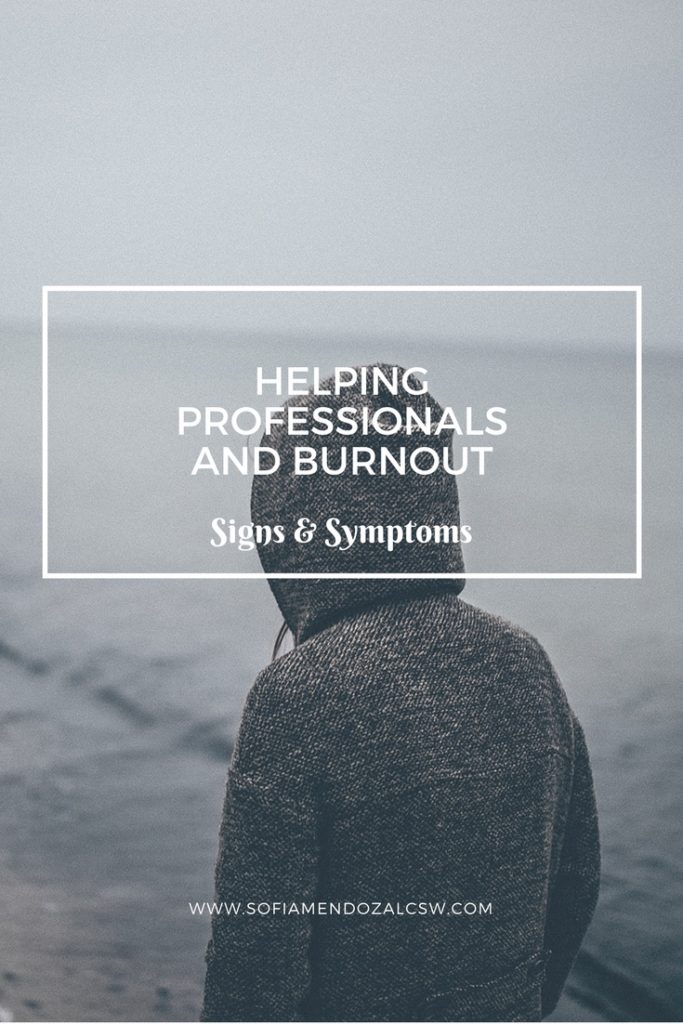It takes a special person with a great deal of compassion and heart to be in any of the helping professions. Here I’m talking about (although not limited to) social workers, therapists, nurses, doctors, caregivers, first aid and crisis responders, etc. Being a helping professional can be incredibly rewarding, while at the same time, emotionally taxing which can cause burnout. Pines and Aronson (1988) defines burnout as “a state of physical, emotional, and mental exhaustion caused by long-term involvement in emotionally demanding situations.” Burnout is characterized by three essential features: “emotional exhaustion, depersonalizations (general feeling of detachment, either personal or with reality), and feelings of ineffectiveness.”
Those who directly deal with responding to trauma or healing trauma, can also experience a state that is called Compassion Fatigue due to secondary or vicarious trauma. Compassion fatigue – is “a state of tension and preoccupation with traumatized patients by re-experiencing the traumatic events, avoidance/numbing… And persistent arousal associated with the patient.
Symptoms of burnout and compassion fatigue can include (and not limited to):
• Poor work performance, excessive absence, lack of interest in the work
• Emotional withdrawal from co-workers, dehumanization, or over-intellectualizing
• Sleep difficulties, fatigue, frequent illness (cold or flu)
• Irritability, anxiety, depression, guilt, helplessness
• Nightmares, anxiety, fear responses
• Poor concentration, self-doubt, fixation on traumas, confusion
Contributing factors associated with chronic burnout and compassion fatigue:
Ineffective coping such as poor self-care, substance abuse, and other risky behaviors.
Helping professional with a history of their own untreated personal trauma(s)
No sense of control over their work or helping those they work with
Lack of good supervision and/or administrative support.
Increasing job demands
Lack of training
Occurrence or Reoccurrence of psychiatric episodes of depression, anxiety, PTSD etc.
Increase in physical ailments or illnesses such as coronary heart diseases, imbalance of stress and cortisol levels.
Therapy can help you process the feelings that come up from being the holders of hope for your clients. A common symptom of working with people in challenging situations is not even having the words to express what it is we’re feeling. And put simply, emotions can be contagious. Helping professionals are highly at risk of feeling what others feel. In part, it’s what draws us to the profession. It’s also what can put us at such high risk for burnout.
You can take a self-test here to see where your compassion fatigue and burnout measures.
I have experience with being a direct mental health service provider for the Los Angeles County Department of Mental Health and can relate to the increasing demands of such a highly regarded and utilized system of care. I also have experience with providing clinical supervision to case managers, therapists, social workers and psychologists and am passionate about addressing their burnout and compassion fatigue.
Together we can assess your level of burnout and/or compassion fatigue and come up with a personalized self-care plan, assertiveness practice and if necessary, healing of your own traumatic experiences.
You can start this journey by calling me at (323) 351-1741 for an appointment.
If you’re looking for self-study, the following books are highly recommended to help you understand burnout and compassion fatigue for helping professionals.
*Disclaimer: I am a participant in the Amazon Services LLC Associates Program, an affiliate advertising program designed to provide a means for me to earn fees by linking to Amazon.com and affiliated sites. You should also know that I stand by my recommendations as I read or use everything I recommend. The fees earned from Amazon.com go toward purchasing more books and materials used in my practice.







